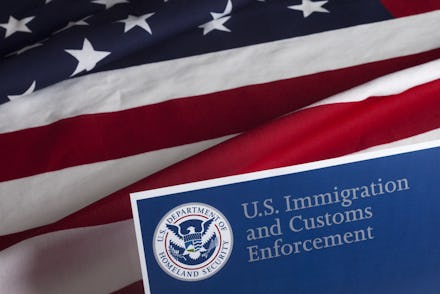Consulting firm McKinsey's suggestions for ICE were sometimes too harsh even for the agency

It hasn’t been a good few years for McKinsey & Company, one of the country’s most elite consulting companies. Several years ago they apologized after they were implicated in African corruption schemes where they made millions, and there is currently a federal investigation into their approach to bankruptcy management. Now, the firm can add “flunkies for Kafkaesque ICE deportation scheme” to their list of accomplishments. On Tuesday, The New York Times and ProPublica released a blockbuster report about how the consulting firm helped ICE fulfill President Trump’s orders to expand deportations massively. In some cases, the firm even proposed some strategies that ICE — not exactly known for caring about immigrant rights — deemed to be too harsh.
In 2017, after pledging to halt illegal immigration, Trump ordered “all legally available resources” to be spent on hiring 10,000 new ICE enforcement officers, as well as that the agency’s border facilities and deportation capabilities be expanded. Large scale corporate reorganizations are hard, so the agency turned to the experts. During the Obama administration, ICE had hired McKinsey to oversee an “organizational transformation” of how the agency deports undocumented people. ICE expanded that contract, and asked McKinsey to continue its work in helping manage the Trump directives.
Bryan D. Cox, a spokesman for ICE, told the Times that McKinsey’s work “yielded measurable improvements in mission outcomes, including a notable decrease in the time to remove aliens with a final order of removal.”
In a bitterly ironic twist, the wildly lucrative company — where salaries for partners start at $500,000 a year, per Glassdoor — recommended that the agency slash spending on food and medical treatment for detainees, according to interviews the Times conducted with multiple people at both ICE and the firm, as well as documents obtained through the Freedom of Information Act. Sometimes people at the agency were uncomfortable with the scale of these cuts — multiple people told the Times that McKinsey consultants were so obsessed with speeding up how quickly immigrants were deported that they made ICE agents nervous that they’d be circumventing due process rights. The Times also quoted a former official who recalled “heated meetings” where McKinsey employees pressured the agency to save “pennies” by cutting costs for detainee care.
At one point, McKinsey employees “ghostwrote” a memo in which ICE argued for a $2.2 million contract extension for the firm, the paper reported. When an ICE official asked a contracting officer whether such an arrangement was appropriate, the officer reportedly responded: “Well it obviously isn’t ideal to have a contractor tell us what we want to ask them to do,” but unless the agency itself could outline its needs without McKinsey’s help, “what other option is there?”
McKinsey apparently hasn’t even been honest with its own employees. Last year, after the Times reported that the firm earned $20 million from ICE contracts, global managing partner Kevin Sneader told employees that McKinsey wasn’t working on anything related to deportation strategy. He said the company “will not, under any circumstances, engage in work, anywhere in the world, that advances or assists policies that are at odds with our values.”
The new report directly undercuts that statement, with multiple sources within ICE and the McKinsey explaining in detail how the company was intimately involved in multiple levels of ICE deportation strategy. According to the Times, an internal ICE contracting document showed the “quantifiable benefits” of McKinsey’s work, “including increased total removals and reductions in time to remove a detainee.”
In a statement, the firm denied that the nature of its work changed in the new administration, though it didn’t deny the allegations of working with ICE on deportations. “The scope of our work, contractually agreed to during the Obama administration, was designed to help the agency find ways to operate more effectively and cost-efficiently,” said a McKinsey spokesperson in a statement to the Times. “The focus of our work did not change as a result of these executive orders. The assertion that McKinsey’s work was ‘redirected’ because of these orders is inaccurate.”
In 2018, McKinsey ended its cooperation with ICE after an uproar. But the company continues to work with the Trump administration on immigation. A week after Sneader announced that the firm had finished its work with ICE, it booked a contract for $2 million to advise Customs and Border Protection. According to the Times, one slide in a pitch deck sent to the CBP just read “Wall.”